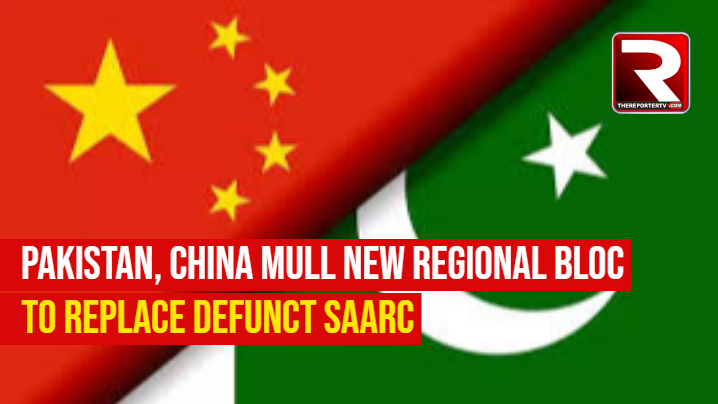Islamabad :Pakistan and China are in advanced discussions to establish a new regional organisation aimed at promoting greater integration and connectivity across South Asia, potentially replacing the long-stalled South Asian Association for Regional Cooperation (SAARC), according to a media report published on Monday.
Citing diplomatic sources, Pakistan’s Express Tribune reported that both Islamabad and Beijing are convinced of the need for a new framework to strengthen regional cooperation. SAARC — comprising Afghanistan, Bangladesh, Bhutan, India, the Maldives, Nepal, Pakistan, and Sri Lanka — has remained largely inactive for nearly a decade, primarily due to India-Pakistan tensions.
A recent trilateral meeting involving Pakistan, China, and Bangladesh in Kunming, China, was described as part of a broader diplomatic effort to explore alternatives to SAARC. Sources said the goal is to bring other South Asian countries on board for a new bloc focused on trade, infrastructure, and economic connectivity.
Despite participating in the Kunming meeting, Bangladesh’s interim government has downplayed its significance. “We are not forming any alliance,” said Foreign Affairs Adviser M. Touhid Hossain, emphasizing that the talks were non-political in nature.
According to diplomatic insiders, the proposed grouping would seek to include India, Sri Lanka, the Maldives, and Afghanistan. The primary objective, they noted, is to create a platform that bypasses political roadblocks while encouraging economic cooperation and regional linkages.
The SAARC bloc has been effectively dormant since its last summit in Kathmandu in 2014. The 2016 summit, which was scheduled to be hosted by Pakistan, was indefinitely postponed after India pulled out in the wake of the Uri terror attack, citing “prevailing circumstances.” Bangladesh, Bhutan, and Afghanistan also declined to attend, leading to the summit’s cancellation.
Observers say the new initiative reflects growing frustration with SAARC’s stagnation and an increasing desire among regional players to explore alternative frameworks for collaboration — even as geopolitical rivalries persist.
If formalised, the proposed organisation would mark a significant shift in regional diplomacy and could reshape the South Asian political and economic landscape.












